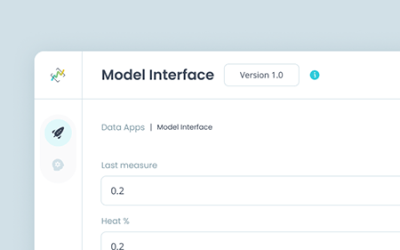Cool UI for your project
Optimization through bitmap indexing techniques
Putting a Machine Learning model into production can be done in many ways. The most common is to create a REST API to serve the model in different systems, but in many occasions, we need to create a cool interface so that a user can interact with the model in a simple way. In these cases, we opt for a web interface.
15 January 2024 | 3 minutes
Blog
Lastest Updates
Never miss a thing in the Data Science industry. Explore in-depth use cases, insightful interviews, the latest updates, tutorials, and much more. Stay ahead with expert insights, industry trends, and practical advice. Just check out the posts and keep your knowledge up-to-date! Welcome to the Shapelets blog.
What is RAG(Retrieval-Augmented Generation)
Create professional interfaces for your machine learning models effortlessly with Shapelets Platform. This tool allows you to design elegant, user-friendly web interfaces with minimal code, letting you focus on your model while Shapelets handles the rest.
Cool UI for your project in minutes!
Create professional interfaces for your machine learning models effortlessly with Shapelets Platform. This tool allows you to design elegant, user-friendly web interfaces with minimal code, letting you focus on your model while Shapelets handles the rest.
Main applications of vector databases
Vector databases store and process data as vectors, offering advantages in data analysis, machine learning, and information retrieval over relational, document, and graph databases. Key applications include semantic search, product recommendation, and anomaly detection. These databases excel in flexibility, scalability, and efficiency, making them highly suitable for handling diverse and large datasets.
Vector Databases with Bitmap Indexing
Explore the power of vector databases, accelerate performance with bitmap indexing. See how Shapelets REC revolutionizes data access speeds.
Million-Datapoint Series
Efficiency and precision in handling extensive data volumes
Smoothing Time Series
Create professional interfaces for your machine learning models effortlessly with Shapelets Platform. This tool allows you to design elegant, user-friendly web interfaces with minimal code, letting you focus on your model while Shapelets handles the rest.
